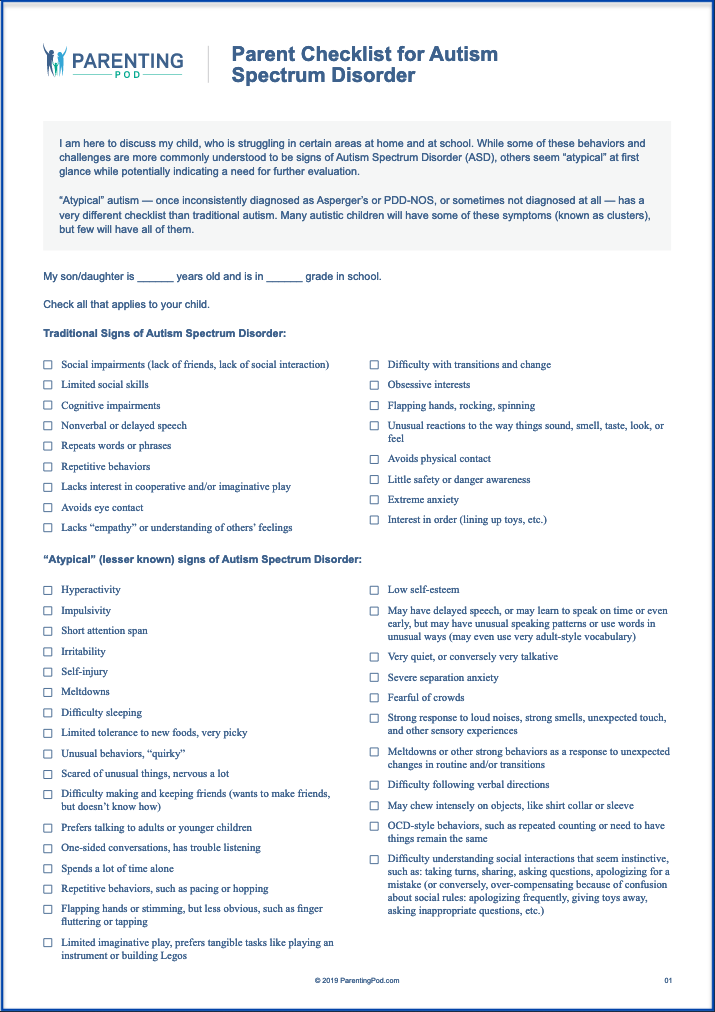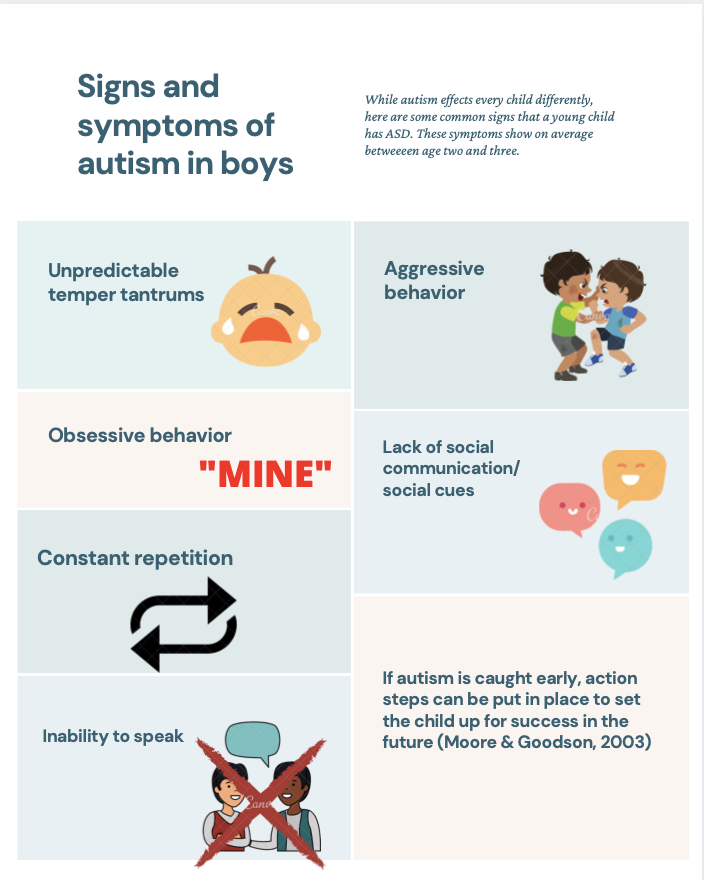Recognizing the Influence of Behavioral Autism on Every Day Life and Social Interactions
You might not understand just how deeply behavioral autism impacts day-to-day life and social communications. People on the range usually navigate a globe loaded with communication difficulties and sensory overload. These obstacles can cause aggravation and isolation, influencing their partnerships and total well-being. Understanding these subtleties is necessary for fostering supportive atmospheres. What techniques can we execute to produce more meaningful links and comprehensive areas? The solutions could shock you.
Defining Behavior Autism and Its Attributes
Behavioral autism, frequently referred to as autism range condition (ASD), encompasses a range of conditions defined by obstacles in social interaction, interaction, and repetitive actions. You may notice that people with ASD often struggle to translate social signs, which can result in misconceptions in conversations. They may locate it tough to develop eye call or participate in small talk, making social situations feel frustrating.
Communication difficulties can materialize in numerous means, from postponed speech growth to a choice for using less words. By acknowledging these attributes, you can foster an atmosphere that promotes approval and urges efficient interaction, helping individuals with autism grow in their daily communications.
The Range of Autism: Comprehending Irregularity in Habits
Autism spectrum disorder (ASD) isn't a one-size-fits-all diagnosis; it varies widely amongst people. You may encounter people that are highly spoken and involve conveniently in conversations, while others could favor singular activities or connect non-verbally.
Furthermore, the means people with ASD respond to sensory input can differ considerably; some may be bewildered by loud sounds or bright lights, whereas others flourish in stimulating environments. The range likewise includes differences in social communications; some people might have a hard time to translate social cues, while others navigate social setups with loved one simplicity. Comprehending this variability is vital, as it aids you value everyone's unique experience and dressmaker support to their details requirements, promoting an extra comprehensive environment for every person.
Interaction Obstacles Dealt With by People With Autism
When you engage with people on the autism range, you might notice their unique communication obstacles. They frequently encounter difficulties with both nonverbal and verbal signs, which can influence their social communications. Understanding these barriers is essential for promoting far better connections and assistance.

Verbal Communication Difficulties
Many individuals on the autism spectrum experience spoken interaction troubles that can substantially affect their day-to-day interactions. You may find it challenging to express your thoughts, feelings, or requires plainly. This can result in disappointment for both you and those around you, as misconceptions occur. You may fight with initiating conversations, keeping a topic, or comprehending subtleties in speech. Typically, you might prefer using easy language or repetitive phrases, which can restrict your ability to participate in deeper conversations. Your tone, quantity, or speed might not line up with social assumptions, creating others to misinterpret your objectives. Identifying these difficulties can aid you and your assistance network develop techniques to improve communication and foster better connections with others in your daily life.
Nonverbal Interaction Barriers
Verbal interaction isn't the only difficulty individuals on the autism spectrum face; nonverbal interaction barriers can be equally as substantial. You may discover it tough to translate body movement, faces, and eye get in touch with, which are essential for reliable communication. These obstacles can lead to misunderstandings or misconceptions of social cues, making interactions feel complicated or overwhelming. You may struggle to express your own emotions with nonverbal ways, leaving others uncertain of your sensations or purposes. This disconnect can develop feelings of isolation and stress. Identifying these obstacles is crucial for promoting understanding and compassion in your communications. By dealing with nonverbal interaction, you can find strategies to enhance your social experiences and improve your total high quality of life.
Social Communication Influences
Social interactions can often feel frustrating as a result of the distinct communication difficulties faced by individuals with autism. You could fight with translating social signs, making it tough to understand sarcasm or body movement. This can cause misunderstandings or uncomfortable minutes in conversations. In addition, launching and keeping discussions may really feel tough, causing stress and anxiety in social circumstances. You might prefer structured environments, making spontaneous interactions awkward. It's additionally usual to experience trouble in engaging in small talk, which can hinder creating brand-new relationships. Acknowledging these obstacles can assist you locate approaches to enhance interaction, such as exercising social skills in safe settings or making use of aesthetic aids - Aba Therapist Near Me. Understanding your demands allows you to browse social interactions with higher confidence and ease.
Social Interaction and Partnership Building in Autism
While building relationships can be testing for individuals with autism, understanding their special perspectives and communication designs can cultivate purposeful connections. You may discover that several individuals on the range like straight interaction and might battle with social cues or little talk. By being straightforward in your communications, you can help create an atmosphere where they really feel comfy.
Put in the time to observe and listen just how they reveal themselves. This understanding can direct you in guiding conversations better. Involving in shared passions can also serve as a bridge to much deeper links. Whether it's a hobby, a preferred program, or a common passion, these common threads can open doors to relationship.
Daily Life Regimen: Navigating Strategies and obstacles
Maneuvering day-to-day life routines can be especially challenging for people with autism, specifically when unforeseen modifications occur. To navigate these obstacles, think about carrying out aesthetic routines or checklists.
Developing a routine that includes sensory breaks can likewise be helpful. You can prepare time-outs throughout your day to charge. It's necessary to connect with those around you, allowing them recognize your demands and preferences. This aids develop an understanding environment.
Lastly, method mindfulness strategies to handle stress and anxiousness. Simple breathing workouts or grounding methods can check my site make a significant distinction. learn this here now By incorporating these approaches, you can improve your daily routine and minimize disruptions, making life feel more convenient.
Strengths and Capabilities of People on the Autism Range
Understanding daily life routines is just one element of the autism experience. Several people on the autism spectrum possess amazing staminas and capacities that set them apart.
In addition, your memory skills commonly radiate, especially in areas of interest. Autism Behavioral Therapy. This propensity for maintaining info can make you a valuable resource in areas like science, art, or modern technology. You may likewise display solid visual reasoning, allowing you to picture complicated ideas and resolve problems creatively
Additionally, your distinct perspective on the world can cultivate compassion and understanding in others, improving social communications. Welcoming these toughness not only boosts your self-confidence however likewise aids others value the diverse talents you offer the table.
Producing Inclusive Environments for People With Autism
Producing inclusive atmospheres for individuals with autism begins with developing sensory-friendly rooms that cater to their unique demands. You can likewise cultivate chances for social interaction, aiding to develop connections and relationships. By making these modifications, you'll add to a much more welcoming atmosphere for every person.
Creating Sensory-Friendly Spaces
While making sensory-friendly areas, it's important to show on the special demands of people with autism. Include silent zones where people can recharge and pull away when overwhelmed. Consist of visual timetables or clear signs to assist individuals browse the space confidently.
Advertising Social Interaction Opportunities
Creating sensory-friendly spaces not only addresses specific convenience yet likewise establishes the phase for significant social communications among individuals with autism. To advertise these interactions, create inclusive atmospheres that welcome involvement. Organize organized tasks, like art courses or group video games, that encourage partnership without overwhelming sensory input. Use visual aids and clear interaction to help everyone involve pleasantly. Encourage peer mentoring, matching individuals with autism with helpful peers that can direct them with social circumstances. In addition, take into consideration organizing normal area events that commemorate neurodiversity, promoting acceptance and understanding amongst all participants. By implementing these strategies, you can enhance social possibilities, aiding individuals with autism develop relationships and strengthen their social abilities in a safe, inviting environment.

Often Asked Inquiries
Exactly How Can Friends Support Somebody With Behavioral Autism?
You can support a close friend with behavioral autism by being person, listening actively, and appreciating their boundaries. Engage in activities they take pleasure in, connect freely, and create a comfy atmosphere where they feel valued and understood.
What Resources Are Available for Moms And Dads of Kid With Autism?
You can check out numerous resources for parents of youngsters with autism, consisting of support system, educational websites, and regional social work. Getting in touch with other moms and dads can additionally supply beneficial understandings and shared experiences to assist navigate obstacles.
Can Behavioral Autism Change Gradually?

Yes, behavioral autism can alter in time. You may observe shifts in interaction, social skills, and behavior as your useful source youngster expands. Early treatment and assistance frequently play essential functions in these developing adjustments.
How Do Sensory Level Of Sensitivities Influence Day-to-day Live?
Sensory sensitivities can make day-to-day experiences overwhelming. You might struggle with loud noises or bright lights, resulting in tension or avoidance. Locating environments that accommodate your demands can considerably enhance your comfort and overall day-to-day live.
What Prevail Misconceptions About Behavioral Autism?
You might think behavioral autism only impacts communication abilities, however it's even more complex. Lots of assume individuals lack compassion or knowledge, which isn't true. Comprehending these misunderstandings aids foster approval and support for those on the spectrum.
Behavior autism, typically referred to as autism range condition (ASD), encompasses a variety of problems identified by challenges in social communication, interaction, and repetitive habits.Social interactions can often really feel overwhelming due to the one-of-a-kind interaction challenges faced by people with autism.Creating sensory-friendly areas not only addresses individual comfort but additionally sets the phase for meaningful social communications among people with autism. Motivate peer mentoring, pairing people with autism with supportive peers that can direct them with social situations. By executing these approaches, you can enhance social possibilities, assisting people with autism construct friendships and strengthen their social abilities in a risk-free, inviting atmosphere.